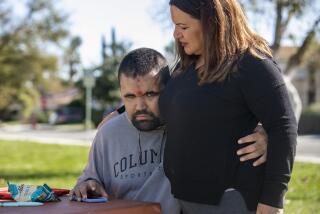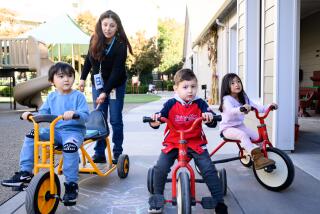One Culture’s Discipline Is Another’s Abuse
- Share via
Teachers at an academically high-achieving private school meet individually with parents to discuss their children’s progress. Since most of the students earn high grades, the teachers, rather than spend scarce time distributing praise, focus on the children’s weaker skills.
Days later, teachers notice bumps and bruises on some of the students.
What went wrong?
The students with signs of physical abuse were recently arrived from Asian countries where it is acceptable for more traditional parents to physically discipline their children for lack of achievement. Once teachers realized the cause and effect relationship between their discussions and the physical abuse, they changed their methods. Since the weaknesses of these children would not be considered as deficiencies in other ordinary school settings, in subsequent parent/teacher conferences, the teachers only talked about the academic achievements of the students.
Teachers are required by law to report signs of child abuse to the proper authorities in Los Angeles County. If these cases are serious enough to reach Children’s Court, the judge or attorney may request a court appointed special advocate (CASA). The CASA agency works on behalf of abused and neglected children and in these situations attempts to link parents with mental health agencies of the same cultural background, recommending counseling and parenting classes. Parents then learn alternative forms of discipline.
Some children learn the rules of a new country faster than their parents and discover effective methods of intervention on their own. They threaten, “If you hit me, I’ll call the police.” Whether serious or bluffing, this often stops parents before they start hitting.
(CASA is a child advocacy volunteer organization. For more information, call [213] 526-6666.)






